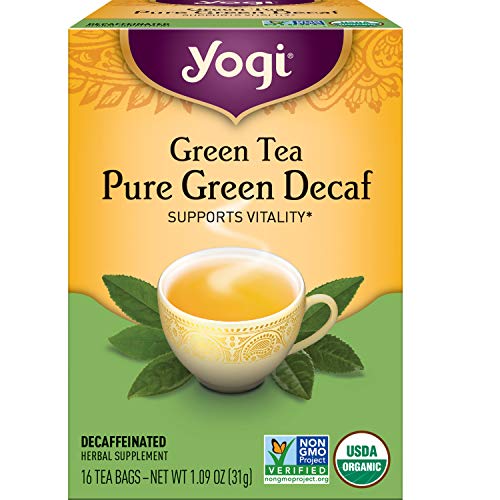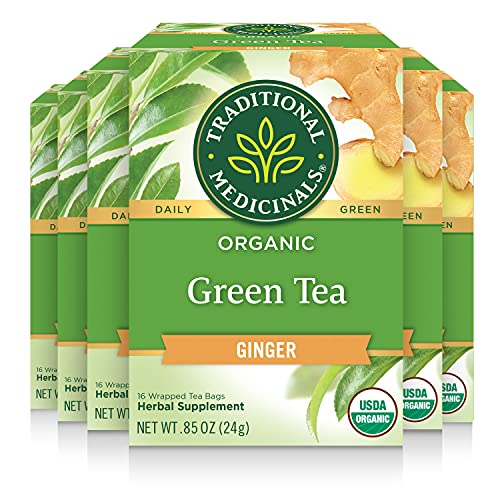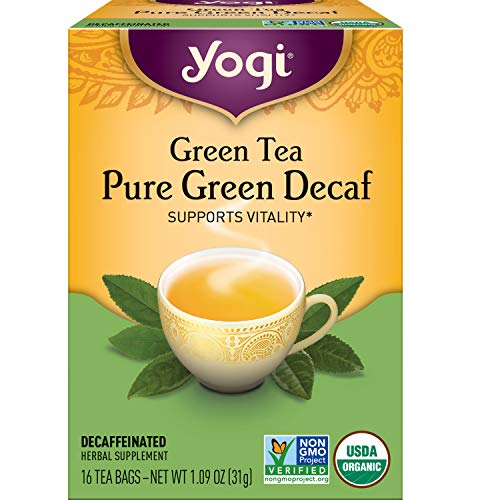Fasting, followed by a plant-based diet, is put to the test for autoimmune inflammatory joint disease.
Alan Goldhamer is the founder of the TrueNorth Health Center in Santa Rosa, California, where 10,000 individuals have fasted for “a variety of conditions from diabetes and cardiovascular disease to autoimmune diseases.” He noted that “conditions that seemed to be tied to dietary excess tended to respond predictably to the use of fasting followed by a health-promoting diet,” which he describes as one that is “low salt, vegan, high fiber, low fat, low protein, and low sugar.”
“This approach offers people an option to make lifestyle changes, eliminate the cause of the problem, and stabilize their conditions, to the point where the medication is no longer needed.” It’s in contrast to “conventional medicine, which is more about the suppression of the symptoms associated with the disease, rather than removing the underlying mechanisms by which they are caused.”
Said Dr. Goldhamer: “If you treat high blood pressure medically, they tell you, ‘You must take these drugs the rest of your life.’ If you have diabetes, they’ll tell you, ‘You’ll be on these medications the rest of your life.’ If you have autoimmune disease, like lupus, rheumatoid arthritis, ulcerative colitis, ankylosing spondylitis, psoriasis, or eczema, you will be told, ‘You must be on medications the rest of your life,’ because medicine guarantees you will never recover. They promise you, if you follow their advice explicitly, you will be sick the rest of your life.”
Preliminary data suggest that fasting may benefit “metabolic diseases, pain syndromes, hypertension [high blood pressure], chronic inflammatory diseases, atopic [allergic] diseases, and psychosomatic disorders,” but the highest level of evidence we have for the benefits of fasting are in regard to rheumatic diseases—autoimmune inflammatory joint diseases, like rheumatoid arthritis.
Nearly a century ago, it was written that “diet treatment is not generally recognized by the medical profession…as one of the weapons with which to attack rheumatic conditions.” This attitude persisted until relatively recently, but a systematic review of controlled trials has since shown “a statistically and clinically significant beneficial long-term effect.”
Rheumatoid arthritis has a well-known genetic component, but the concordance rate—that is, the chance that a pair of identical twins both get it when one has it—is probably less than 30 percent, despite the twins having the same genes. That leaves 70 percent to be explained by nongenetic factors.
Even if we don’t know exactly what those factors are, “fasting is very similar to rebooting the hard drive in a computer. Sometimes, the computer gets corrupted and you do not know exactly where the problem is. But if you just turn it off and reboot it, a lot of times, that corruption gets cleared out.”
The evidence base started with case reports of water-only fasting followed by a plant-based diet. There were remarkable reports of years of pain and stiffness that were not only gone within a week but, more importantly, stayed gone on the healthier diet. One after another, just like that. But case reports are merely glorified anecdotes. There have been studies going back decades suggesting that “fasting may represent the most rapid and most available way of inducing relief of arthritic pain and swelling for patients who have RA,” rheumatoid arthritis, but they often failed to control for the placebo effect, which is “particularly important whenever self-reporting systems are used (reports on general well-being, pain, stiffness, tiredness, and the like)”—that is, subjective symptoms. There are objective measures, however, including lab tests of inflammation that don’t appear to be affected by placebos. As shown below and at 3:22 in my video Fasting for Rheumatoid Arthritis is what can be seen in controlled trials, starting immediately and staying down for at least a year.

Ten different measures of inflammation decreased significantly after the fasting and subsequent meat- and egg-free diet, whereas none of the parameters budged in those individuals with rheumatoid arthritis who continued to eat their regular diets. What’s more, this squelching of inflammation translated into a significant reduction in pain, morning stiffness, loss of grip strength, and the number of tender and swollen joints, as you can see below and at 3:43 in my video.
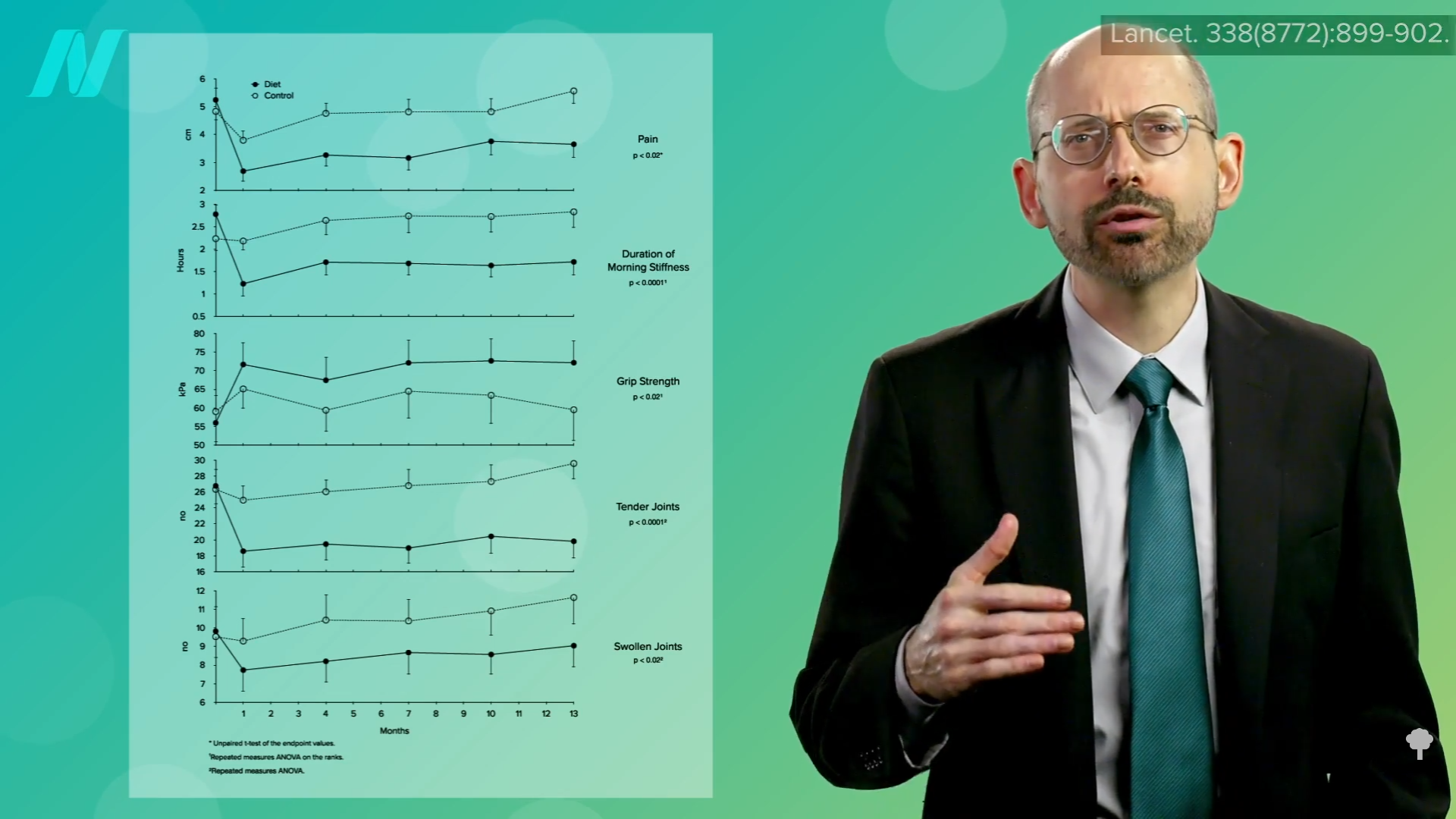
Even a year after the trial had ended, those who benefited from the diet continued to benefit in terms of less pain, stiffness, and tender and swollen joints, presumably because they stuck with it, as shown here and at 4:00 in my video.
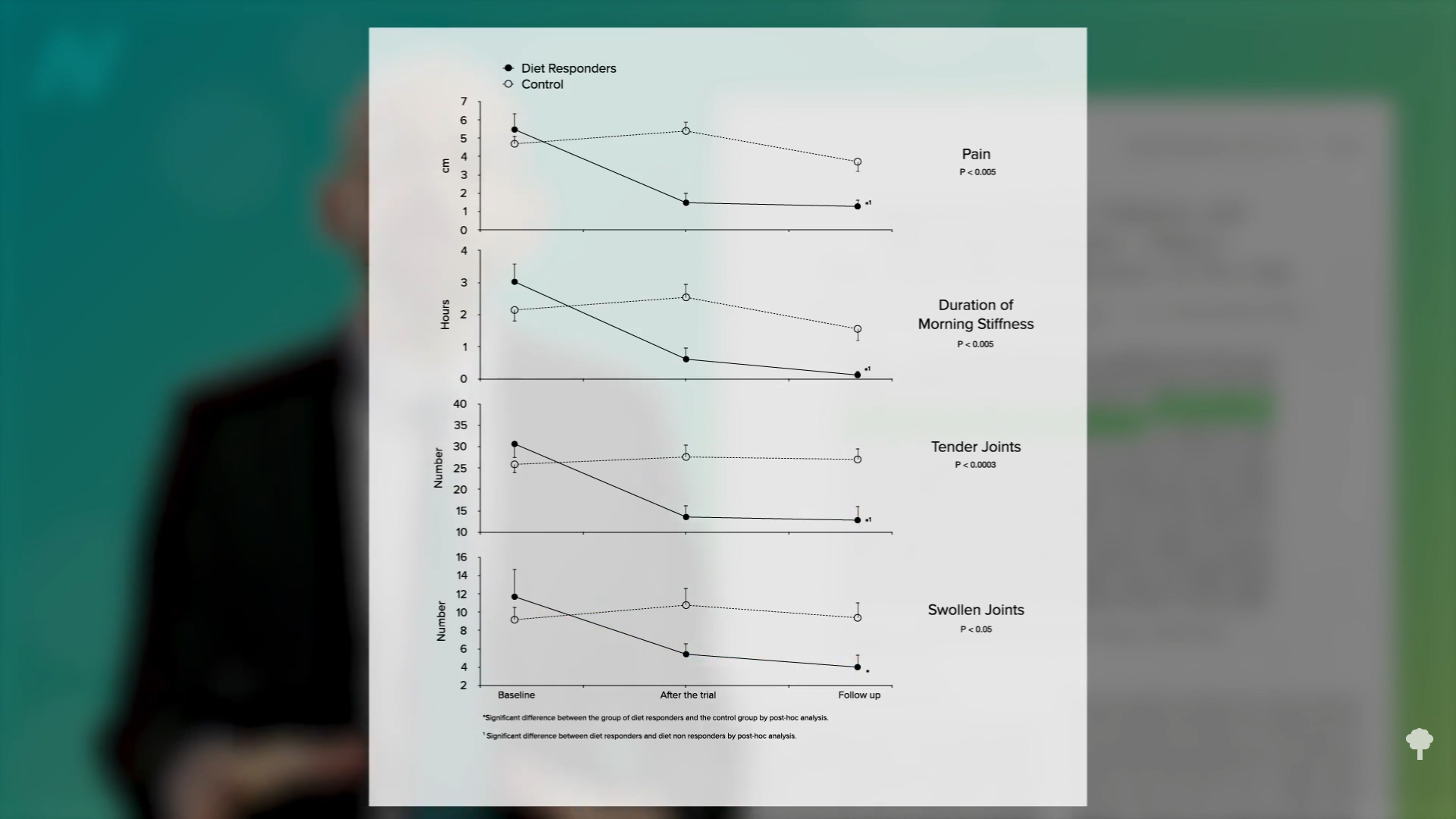
“There is little doubt that during the period of fasting both inflammation and pain are reduced in RA patients,” individuals with rheumatoid arthritis. “However, after the normal diet is resumed, inflammation returns unless the fasting period is followed by a vegetarian diet…” Why might that be? It could be due to changes in the microbiome. The improvement in symptoms coincided with a “significant alteration in the intestinal flora” when patients switched from an omnivorous diet. “A diet can change intestinal flora and this may somehow be beneficial in RA,” perhaps by strengthening the gut barrier. We know fasting can decrease the leakiness of the gut in individuals with rheumatoid arthritis, but we don’t yet know what role, if any, this plays in the disease process.
It could be as simple as eicosanoids, the mediators of inflammation that are formed from arachidonic acid. Arachidonic acid is a long-chain, inflammatory, omega-6 fatty acid found in animal fats. As seen below and at 5:04 in my video, the biggest contributors are chicken and eggs, which together contribute nearly half the intake of Americans. That’s also been suggested as an explanation for why those eating more plant-based appear to have better mental health; they aren’t suffering the “cascade of neuroinflammation” caused by arachidonic acid. It’s also why removing eggs, chicken, and other meats was shown to improve mood in a randomized controlled trial, suggesting the arachidonic acid “may negatively impact mood state.” It may also help explain the impact of more plant-based diets on inflammatory diseases like rheumatoid arthritis.
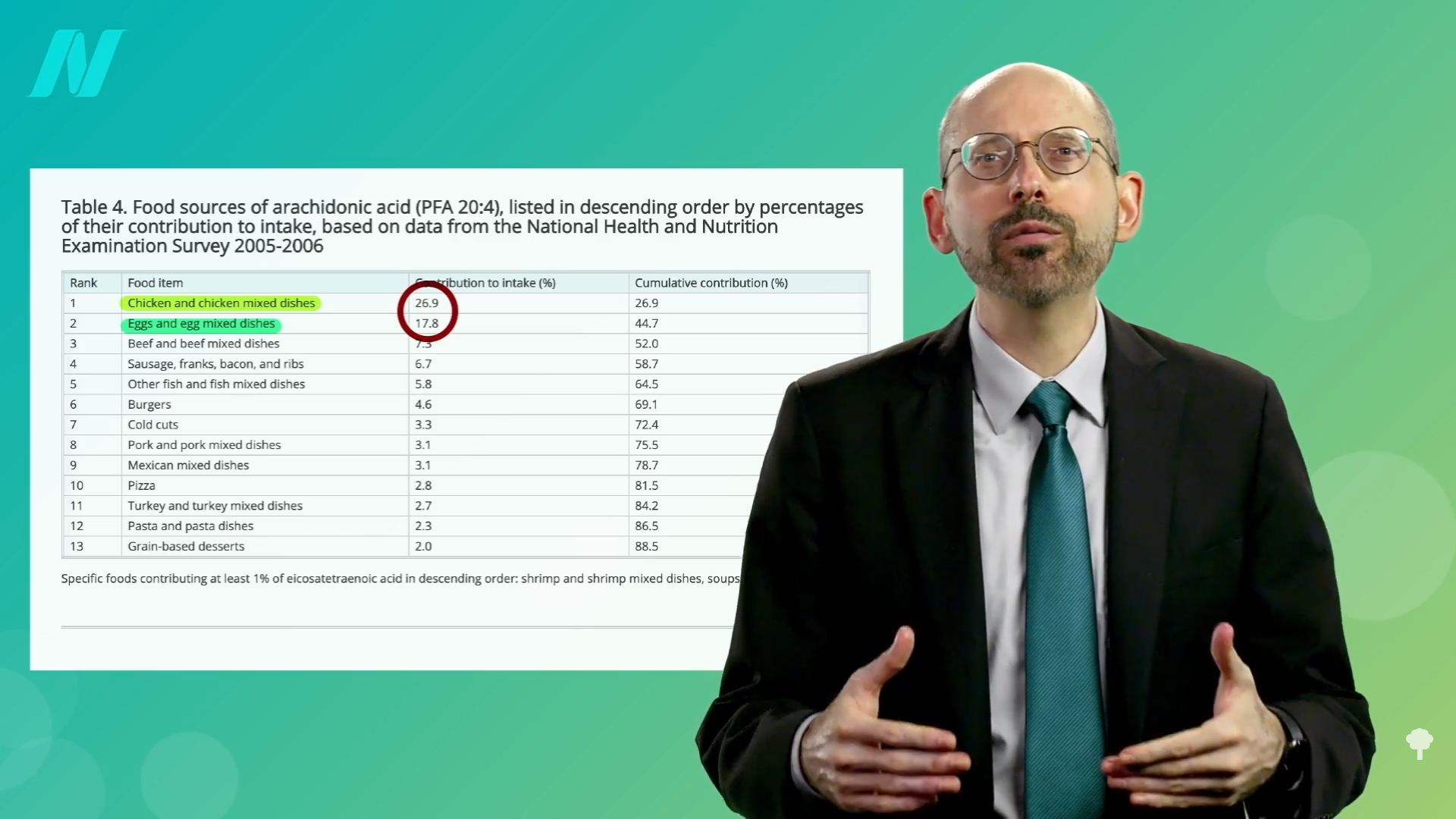
So, all of this may help explain why “maintaining a nutrient-dense, vegan diet of unrefined plant foods”—a plant-based diet—“appears to be necessary after the fast to prevent the recurrence of symptoms and inflammatory activity,” or as one popular press article put it, fasting may just be a tool to get you to radically kickstart a change in the way you eat.
For more on fasting, see related posts below.
This video was originally part of my Fasting for Disease Reversal webinar. If you want to see all of the videos in one place, check them out here.
Stay tuned for Fasting for Autoimmune Diseases, coming up next.
For more on rheumatoid arthritis, see Turmeric Curcumin and Rheumatoid Arthritis, Why Do Plant-Based Diets Help Rheumatoid Arthritis?, and Friday Favorites: Fasting for Rheumatoid Arthritis and Autoimmune Diseases.

